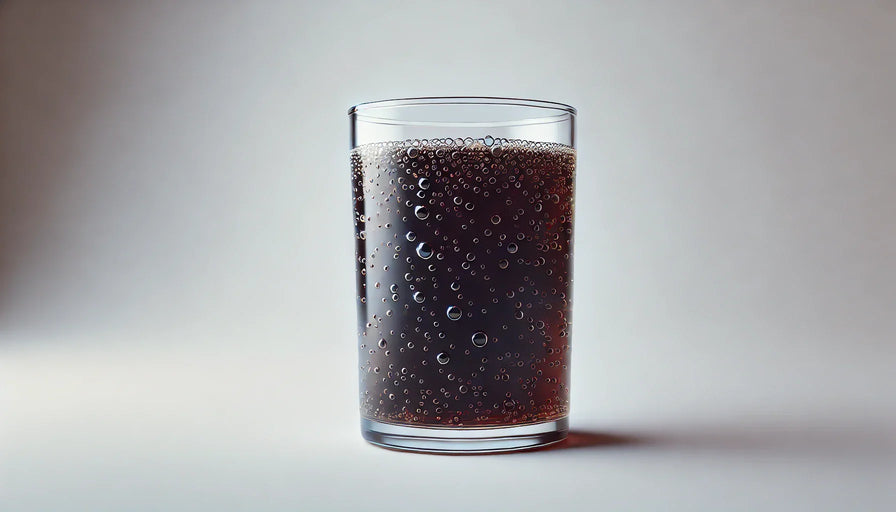
Is Carbonation Bad for Your Bones?

Is carbonation bad for your bones?
Moderate carbonation is not likely to have a significant adverse effect on bone health, especially when balanced with a diet rich in calcium and other nutrients important for bone maintenance.
Carbonated water has gained popularity not only for its refreshing taste but also for the potential health benefits it may offer. Many individuals are curious about how carbonated beverages impact overall health, particularly in regard to bone health and hydration.
In this blog, we will further explore the effects of carbonation on bone health and provide some insights on how to enjoy your favorite carbonated drinks in moderation without compromising bone health.
Table of contents
Is carbonation bad for you?
While moderate consumption of carbonated beverages is typically safe, concerns frequently emerge about their possible negative health impacts.
At its core, carbonation itself isn't harmful; however, many other ingredients found in various carbonated drinks may contain unhealthy components that should be consumed in moderation.
Here’s an overview of the elements of carbonation and the common misconceptions regarding its effects:
Phosphoric acid
Many soft drinks contain phosphoric acid, which has been linked to decreased bone density in some studies. The theory is that excess phosphoric acid may interfere with calcium absorption, potentially leading to bone health issues over time.
However, the amount of phosphoric acid present in carbonated beverages is relatively small and would not have a significant impact on bone health in moderate consumption.
A typical can of cola contains roughly 400 mg of phosphoric acid, whereas a 12 oz can of LaCroix contains about 5 mg. Sparkling water is typically phosphorus-free, especially when made at home.

Caffeine
Certain carbonated beverages, especially colas, contain caffeine, which is known to contribute to calcium loss through urine. While the impact is generally minimal with moderate consumption, excessive intake can raise concerns about bone health.
It's essential to recognize that caffeine levels can vary significantly among different carbonated drinks, and many options now exist with little to no caffeine at all.
Carbonation (CO2)
The process of carbonation does not inherently harm bones; however, some believe that the bubbles and acidity can erode tooth enamel and contribute to oral health issues.
This effect is largely related to the beverage's pH level, though. Many sparkling water brands and sodas range greatly on the pH level scale, so it is not consistent to say across the board that carbonation is bad for tooth enamel.
Learn more about common pH levels of carbonated beverages so you are making mindful and educated decisions when it comes to your health.
Related read: Can You be Allergic to Carbonation?
Overall dietary context
Ultimately, the health effects of carbonation are heavily influenced by overall dietary patterns.
Consuming carbonated drinks in moderation as part of a balanced diet rich in calcium, vitamin D, and other essential nutrients is unlikely to pose significant risks to bone health.
Related read: Is Sparkling Water Bad for IBS?

Why is soda bad for your bones?
Soda, particularly colas, poses potential risks to bone health primarily due to its high phosphoric acid content, sugar levels, and PFAS.
Research suggests that excessive intake of phosphoric acid can disrupt calcium absorption, which is vital for maintaining strong bones. The carbonation in soda creates a more acidic environment in the body, which may contribute to the leaching of calcium from bones over time if consumed in large quantities.
Therefore, while moderate consumption may not immediately harm bone health, high intake of soda can lead to long-term negative effects, especially when it replaces nutrient-rich beverages like milk or fortified plant-based drinks.
Related read: Is Carbonated Water Bad for Your Kidneys?
Is carbonation bad for osteoporosis?
When it comes to osteoporosis, carbonation itself is not directly detrimental. However, the types of carbonated beverages consumed can have an impact.
Sodas high in phosphoric acid and sugar can exacerbate the condition by potentially interfering with calcium absorption and contributing to overall lower calcium intake if they replace more nutritious drink options.
For individuals with osteoporosis or at high risk for it, it is crucial to focus on a balanced diet that emphasizes calcium and vitamin D, while moderating the intake of carbonated soft drinks. A diet that prioritizes bone health will mitigate any potential risks associated with carbonation.
Related read: Does Carbonation Harden Ovaries?

Key takeaways
- Moderate consumption of carbonated beverages is generally safe and unlikely to significantly impact bone health, provided it is balanced with a nutrient-rich diet.
- Sodas high in phosphoric acid and sugar can disrupt calcium absorption and pose risks to bone health, particularly for individuals with osteoporosis or at risk for it.
- The effects of carbonation on bone health also heavily depend on the overall dietary context and individual factors.
- Carbonation itself is not inherently bad for bones, but it's important to be mindful of what other components and nutrients are present in carbonated drinks.
- Sparkling water is completely safe to assist in your daily water intake.
Recommended reading

How to Give Back During Thanksgiving 2025
Key takeaways Thanksgiving is a time to express gratitude and share with those in need. From volunteering at local shelters to donating food and essentials, there are numerous ways to give back to...

What Does Carbonation Do to Your Body?
What does carbonation do to your body? Carbonation alone typically has minimal effects; however, it can cause bloating and discomfort for some, and it may worsen acid reflux due to carbon dioxide ...

What Are the Health Benefits of Sparkling Water?
Summary Sparkling water isn't just a refreshing drink—it comes with surprising health benefits too. From aiding digestion to improving hydration, discover how sparkling water can be a healthy addi...